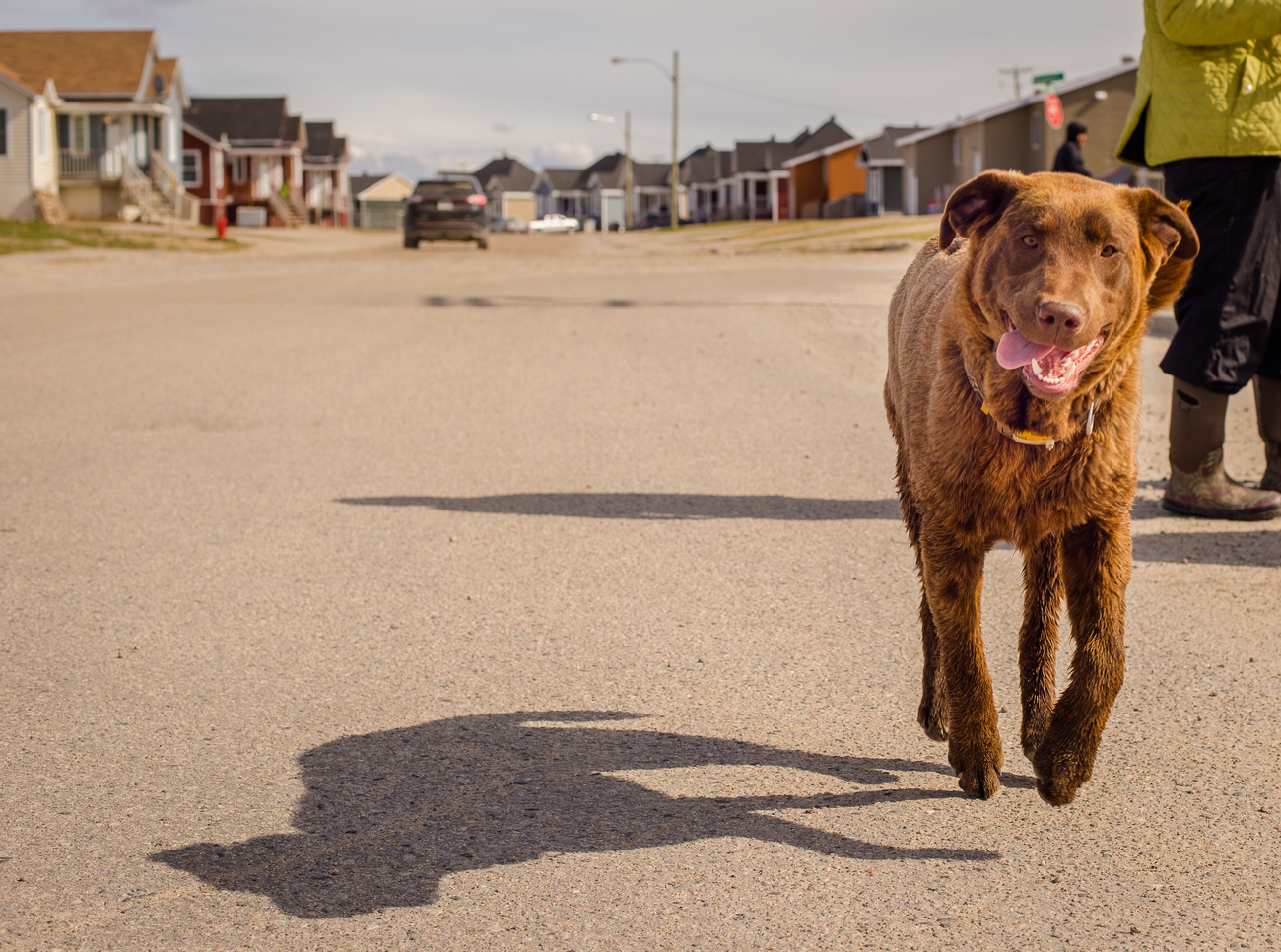Northern Dogs Project - Canada
Distance can’t get in the way of safeguarding dogsdespite new COVID-19 challenges, ifaw's Northern Dogs Project continues to help dogs and Indigenous communities
despite new COVID-19 challenges, ifaw's Northern Dogs Project continues to help dogs and Indigenous communities

Since 2001, IFAW‘s Northern Dogs Project has been working with Indigenous communities in Canada to develop humane and sustainable dog management programs. Our team uses multiple strategies including spay/neuter, children’s education, bylaw assistance, and rehoming (finding a new home) to get to the core of various issues. When we began this work in 2001, the biggest complaint from communities was that there were too many stray dogs. We quickly realized that dog numbers are usually not the root of the problem. Normal dog behaviors like chasing cars, hanging out in groups, eating garbage, and barking at people were the issues that community members considered a nuisance and safety concern. By addressing these issues, IFAW creates long-term solutions that work to solve the root cause of the problem.
Today, almost 20 years into our work, we find ourselves in uncharted territory due to the global pandemic. Thankfully, along with the challenges of the times, come opportunities to increase both our effectiveness and efficiency, giving us a chance to insert flexibility where needed to help more dogs, support more people, and assist even more communities.
Often the initial engagement with First Nations communities and their dogs comes as a phone call or email about a sick, injured, or unwanted dog in need. Regardless of whether the calls are similar in nature, IFAW recognizes that each community is unique and warrants its own specialized approach. During the current COVID-19 crisis, we have come under new constraints and restrictions at multiple levels that have affected what we do and how we do it. Not just constraints at the federal, community, and Territorial/provincial government levels, but also at the organizational and personal levels. As First Nations have responded to the COVID-19 crisis within their own communities, we have adjusted our engagement with our partners based on their ability to participate in conversations and activities related to ‘non-human’ health, fully aware that these small, isolated communities would quickly become overwhelmed with a virus outbreak. As a result, we have tailored our interactions to fit the needs of each community according to their capacity to engage on dog issues right now.
With many communities still in lockdown, this is the first time that the Northern Dogs vet team has been unable to provide annual IFAW spring veterinary clinics that provide much needed veterinary care. Spay services are particularly valuable to community members, especially those who had a young female dog at last year’s clinic and were counting on having her spayed at this year’s clinic. Other owners may have decided to protect their female dogs from overzealous male suitors and the burden of having pups this spring. As part of a comprehensive dog management program, our veterinary services and clinics help keep individual dogs and the larger community safe, while ensuring overall dog population numbers remain controlled.
Within the context of our current reality, the Northern Dogs Project has been helping in other ways as well to fill the gap left by the lockdowns. This spring we have been assisting dog owners and contributing to improved public safety by taking unwanted litters of pups and abandoned dogs. While the objective of the project has always been to help owners take care of, as well as keep their dogs, uncertain times call for creative options and innovative approaches. We have been driving as far north as current road blocks allow, meeting with both owners and dog advocates with ‘four-leggeds’ who need to come south for rehoming. Most of the unwanted animals have been puppies from owners who would have had their females spayed at this year’s clinic.
While IFAW is ready to assist in any way we can, we look forward to getting back to providing community-based solutions that help individual dogs and empower entire communities. This is the long-term solution we strive for.
-Jan Hannah, Director, Northern Dogs Project, Canada
Related content
Our work can’t get done without you. Please give what you can to help animals thrive.